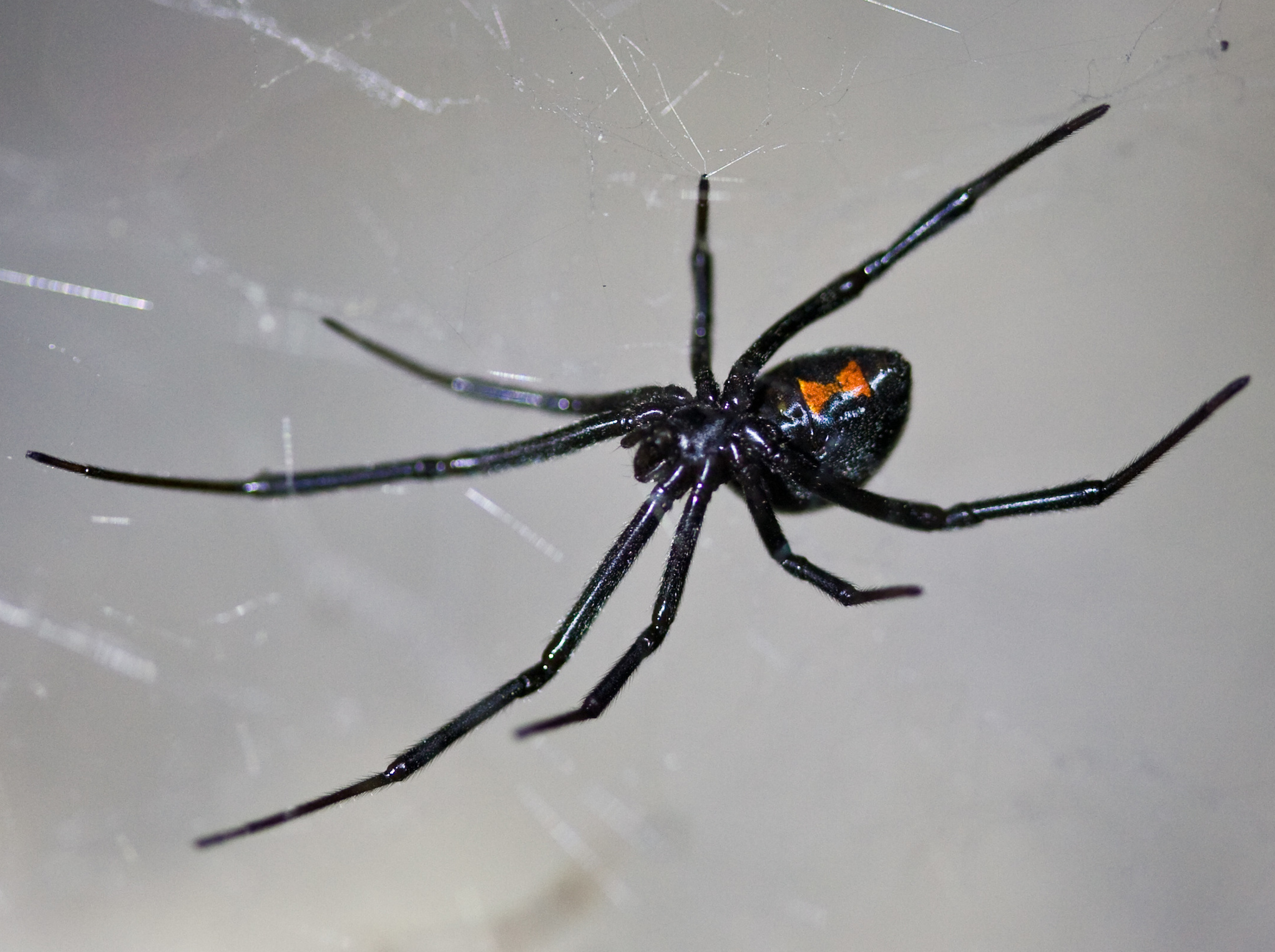Black Widow Spider Bite
Symptoms of a Black Widow Spider Bite
A black widow spider bite can cause a range of symptoms that may vary in severity. The main symptoms of a black widow spider bite include:
- Immediate, intense pain: One of the most distinctive symptoms is an immediate, severe, and intensely painful reaction at the bite site. The pain can radiate throughout the affected limb or body part.
- Redness and swelling: The bite area may appear red and swollen, and a small puncture mark or bull’s-eye pattern may be visible.
- Muscle rigidity or cramping: Within a few hours after the bite, muscle rigidity or cramping can develop in the affected area and potentially spread to other parts of the body.
- Abdominal pain and nausea: Abdominal pain, nausea, and vomiting are common symptoms, especially in severe cases.
- Excessive sweating: Profuse sweating or perspiration can occur, even in areas not directly affected by the bite.
- Weakness and tremors: Some individuals may experience muscle weakness, tremors, or uncontrolled twitching or jerking movements.
- Headache and fever: A headache and mild fever may develop as a result of the body’s inflammatory response to the venom.
- Dizziness and fainting: In rare cases, dizziness, fainting, or loss of consciousness may occur due to the effects of the venom on the body’s nervous system.
- Respiratory distress: In severe cases, particularly in young children, the elderly, or those with underlying health conditions, respiratory distress or difficulty breathing may occur.
It’s important to note that the severity of symptoms can vary widely, depending on factors such as the amount of venom injected, the age and health of the victim, and the location of the bite. Some individuals may experience only mild symptoms, while others may have severe reactions.
If a black widow spider bite is suspected, it is crucial to seek immediate medical attention, especially for children, the elderly, or those with underlying health conditions. Antivenom treatment may be necessary in severe cases to counteract the effects of the venom and prevent potential complications.
Cause
The cause may have to do with the fact that you were bitten by a damn spider.
Treatment for Black Widow Spider Bite
The treatment for a black widow spider bite typically involves managing the symptoms and preventing potential complications. Here are the common treatments:
- Seek medical attention: It is important to seek prompt medical attention, especially if severe symptoms develop or if the bite victim is a child, elderly, or has underlying health conditions. Antivenom treatment by your healthcare provider may be required in some cases.
- Antivenom: For severe cases or bites that cause systemic symptoms (such as muscle cramping, nausea, or difficulty breathing), antivenom may be administered. Black widow spider antivenom can help neutralize the venom’s effects and provide relief from symptoms.
- Pain management: Over-the-counter or prescription pain medications, such as acetaminophen, ibuprofen, or opioid analgesics, may be prescribed to alleviate the intense pain caused by the bite.
- Muscle relaxants: Medications like benzodiazepines or muscle relaxants can help relieve muscle cramping and rigidity associated with black widow spider bites.
- Supportive care: Depending on the symptoms, supportive care may include intravenous fluids for hydration, antiemetics (anti-nausea medications), or respiratory support if breathing difficulties occur.
- Wound care: The bite site should be cleaned and monitored for signs of infection. Antibiotics may be prescribed if an infection develops.
- Tetanus vaccination: If the bite victim has not received a tetanus vaccination within the past five years, a booster shot may be recommended to prevent tetanus.
- Observation: In some cases, especially with mild symptoms, the patient may be monitored for symptom progression or complications, and treatment may be adjusted accordingly.
It’s important to note that most black widow spider bites can be effectively treated with supportive care and pain management. Antivenom is typically reserved for severe cases or when systemic symptoms are present. Prompt medical attention and appropriate treatment can help prevent potential complications and facilitate recovery.




